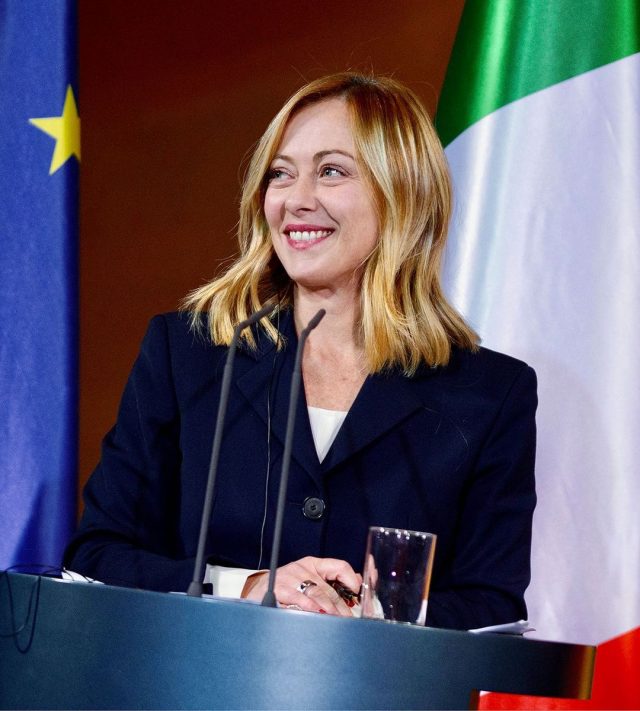
“Italy is back as a protagonist in the West, in Europe, and in the Mediterranean after the years of servility of certain leftists, after the years of the circle-jerkism of the Five Star. It is back the Italy that fulfills its international commitments, that is looked upon with respect because it has the courage to make right decisions even when those decisions may be unpopular. Like that of supporting the Ukrainian people fighting for their freedom against Vladimir Putin’s neo-Soviet imperialism.”
These are the words with which Giorgia Meloni announced her candidacy in the upcoming European elections, and they are unquestionable words, as evidenced by istat data on jobs and employment, as evidenced by the steady decline in the spread, and as evidenced by the success of treasury bonds issued in this last period.
Unassailable data that even international observers have noticed, the Meloni government enjoys the appreciation of everyone, even those who feared its advent, particularly the United States and Germany.
Appreciation that is also highlighted by major foreign media outlets, from the French of “le Figarò” to the British of “The Times” to the recent accolades of “Forbes” and “New York Times,” the chorus is unanimous: Giorgia Meloni is the most influential European politician of the moment and her government stable and reliable.
Hence the concerns about the upcoming European elections from a left that appears throughout Europe, Italy in the lead, to be “tired” and disconnected from everyday reality, that fights to defend uncontrolled immigration with the same rhetoric as always, that proved to have no realistic geopolitical vision on the occasion of the Ukrainian war and the ensuing energy crisis, and that today pursues the chimera of electric cars without interfacing with the real issues of its citizens.
Concerns that come precisely from Giorgia Meloni’s vision of the Europe of tomorrow and, more generally, the European right, a right that over time has been able to build a solid network of relations, has acquired a credibility and reliability in its respective countries that it has never had before, and that presents itself as a united and reliable bloc.
A Europe that would like to put citizens back at the center, reducing technocracy in favor of a real democracy, that takes into account the peculiarities of each individual state and knows how to draw strength and value from this to create the “common good,” that takes care of the environment in a serious and truly sustainable way, that knows how to defend its borders and its citizens, that can have a truly unique and strategic role geo-politically, and that knows how to revive the real economy . This is the challenge launched in Italy by Giorgia Meloni’s Center-Right and in Europe by the allies of the ECR group and beyond.
A difficult but not impossible challenge based on a few points that avoids feel-good rhetoric and comes with a practical and pragmatic vision, exactly like the Italian leader: practical and pragmatic.
Federico Moneta



 Subscribe
Subscribe